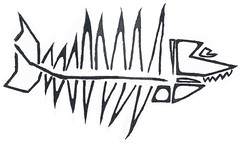Try these databases and search resources to get started.
This collection, which includes PAIS Index, Policy File Index, Political Science Database, and Worldwide Political Science Abstracts, provides abstracts, indexing and full text coverage of journal articles, country reports, dissertations, think-tank reports, working papers, government documents and more, including full-text from many leading political science and international relations journals.

Reading a scholarly article can seem daunting at first. Scholarly articles are long and have a lot of data. If you break down the article into components, it will make it easier to read and understand.
